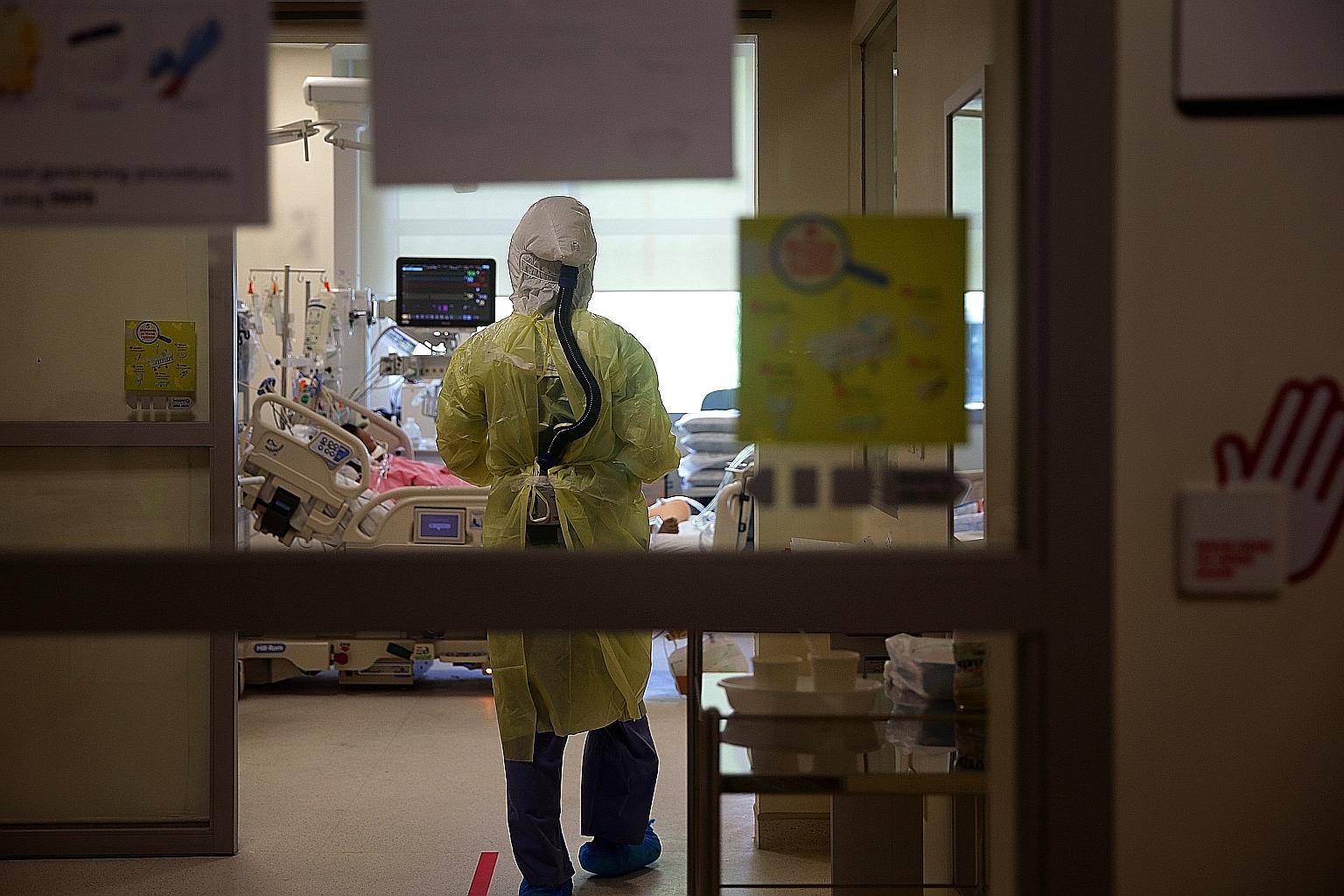Coronavirus: Singapore
Close watch being kept on hospitals' ICU capacity
Five weeks could be all it takes to overwhelm the intensive care units, says Ong Ye Kung
Sign up now: Get ST's newsletters delivered to your inbox

The intensive care unit at Ng Teng Fong General Hospital. Deaths can occur easily if the hospitals are seriously overwhelmed, as seen in other places.
ST PHOTO: KEVIN LIM
As the KTV cluster grows, the authorities here are keeping a close eye on the capacity of intensive care units (ICU) in hospitals because five weeks could be all it takes to overwhelm them, Health Minister Ong Ye Kung said yesterday.
In less than a week, the cluster that started among people who had socialised in clandestine gatherings at KTV lounges has become Singapore's largest active cluster with 120 cases.
It was the second-largest cluster on Thursday, with 88 cases.
Mr Ong was speaking at a virtual media conference held by the multi-ministry task force on Covid-19.
The cluster is expected to grow, given that household transmission has occurred and there may be infected cases yet to be identified.
Trade and Industry Minister Gan Kim Yong said at the same media conference that the KTV cluster, as well as previous ones, have shown that many household contacts have been infected without leaving their homes or participating in high-risk activities.
As there remains a sizeable group of seniors here who have not been vaccinated, the concern now is not so much the size of the cluster but the number of vulnerable people who may be infected as they could require ICU care.
Of those aged 70 and above, about 29 per cent, or 140,000, have yet to be vaccinated.
Mr Ong said: "If in the next few days, more people (were to) fall sick and in the ICU, there are 25 people. In one week, there will be 50 people."
Then, there will be 100 people in the second week, 200 people in the third week, maybe about 500 people in the fourth week, and about 1,000 people in the fifth week, he added.
"We cannot wait five weeks. By the third week, if we see the numbers go up, action has to be taken quickly to rewind us back to at least the phase two (heightened alert)."
Deaths can occur easily if the hospitals are seriously overwhelmed, as has been the case in other places that have witnessed a huge surge in severe Covid-19 cases.
In the hospitals, there are 1,000 beds set aside for Covid-19 patients, and currently, there is one elderly Covid-19 patient in ICU.
The Singaporeans in the KTV cluster range in age from 19 to 60, and are frequent patrons of KTV lounges, Singapore's director of medical services Kenneth Mak said at the media conference.
The majority of the cluster cases are young, which may be why they were either asymptomatic or mildly infected, and being cared for in community care facilities, where doctors and nurses are around to monitor their health.
There is currently enough capacity in the hospitals and community care facilities, he said.
"However, as many of the more severe symptoms for Covid-19 infections only manifest in the second week... we will need to continue to keep a close watch on all of them."
Associate Professor Mak also said the authorities remain on guard for possible secondary transmission in the cluster.
Of the 88 cases in the cluster as at Thursday, only six were fully vaccinated. The remaining 82 cases were either unvaccinated or partially vaccinated.
A recent study of 1,000 household contacts of Covid-19 cases in Singapore has shown that mRNA vaccines have an effectiveness of between 80 per cent and 90 per cent when it comes to protection against symptomatic disease.


